The House of Commons returns from its holiday break and resumes sitting next Monday, January 31. The Senate will not return until a week after the House, on February 8.
This backgrounder summarizes major pandemic developments since December as well as the key policy issues that made news during the break. We also look ahead to the likely top priorities on the government’s agenda for the winter sitting of the House and Senate.
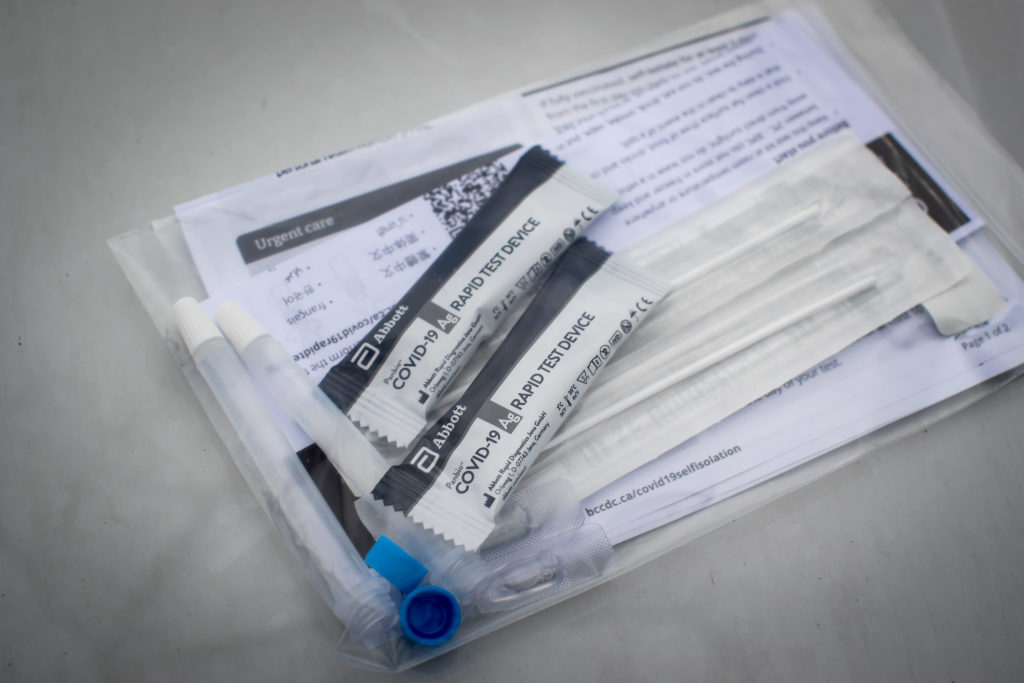
Omicron surges
Throughout January, most pre-holiday forecasts of the impacts of the Omicron variant have come true. With a higher transmissibility, the variant eclipsed all previous case count records, overwhelming provincial testing systems. Due to the variant’s lower severity, serious illnesses have not increased at the same explosive rate as in earlier waves, but hospitalizations have accelerated significantly in all regions, threatening the collapse of acute care. In addition, many long-term care facilities have been particularly hard by staff absences due to the virus.
Provinces responded by reimposing lockdowns and restrictions, and hospitals once again delayed many surgeries and diagnostic procedures. Most provinces put off the resumption of in-class learning by a couple of weeks and reopened schools in the middle of January. Thankfully, most schools have been spared the widespread closures due to sick teachers and students that many had feared. With several provinces seeing a slowing of the spread of Omicron, some have begun outlining future plans for easing restrictions.
A weary public
A seemingly endless struggle against the virus combined with a continually increasing cost of living has almost certainly increased a sense of public fatigue across the country. A national poll by Abacus released mid-month reported that 47 per cent of Canadians now feel the country is on the wrong track, up four percentage points over December. An Angus Reid Institute poll released January 17 revealed that five premiers – Scott Moe (Saskatchewan), Doug Ford (Ontario), Blain Higgs (New Brunswick), Jason Kenney (Alberta) and Heather Stefanson (Manitoba) – are all receiving negative public reviews of their pandemic management performance.
Mandatory vaccines?
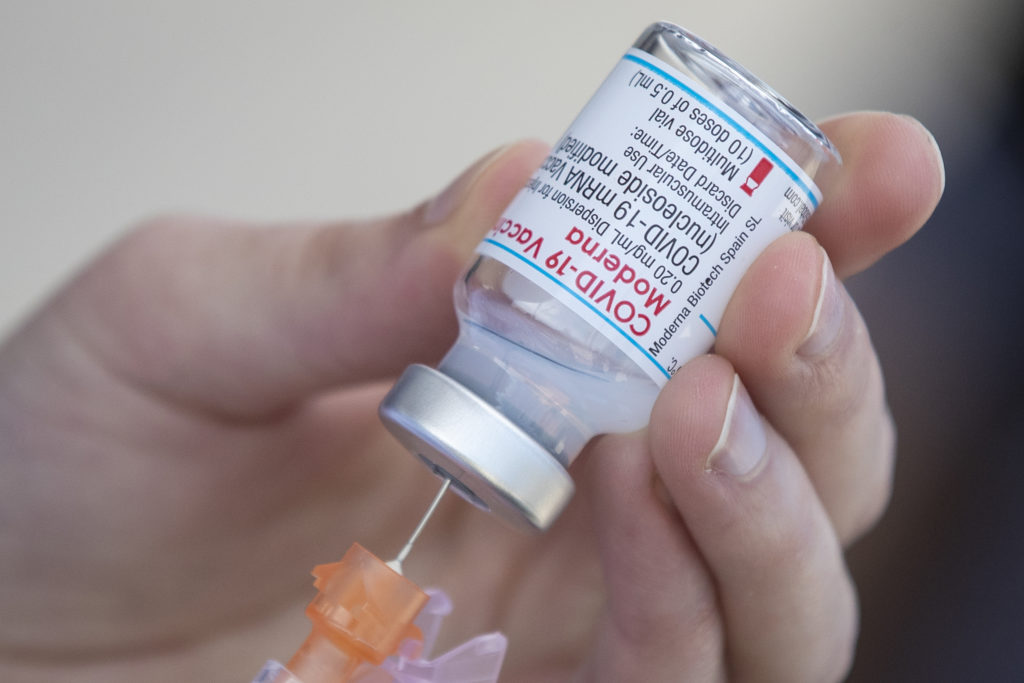
With some regions of the country seeing up to 70 per cent of recent hospitalizations attributable to the unvaccinated, public attitudes towards the 6.5 million vaccine delinquent Canadians have hardened. An Ipsos/Global News poll released January 24 reported that 67 per cent of Canadians support the imposition of additional measures on the unvaccinated population, and nearly half (49 per cent) blame the unvaccinated for prolonging the pandemic.
After federal health minister Jean-Yves Duclos mused about the inevitability of about mandatory vaccinations, Quebec premier Francois Legault announced that the province would bring in a “health care contribution” for all adults who refuse to get their first dose of the vaccine. Legault’s comments have triggered a lively debate on the new frontiers of civil liberties restrictions and the appropriateness of negative or inverse “sin taxes” to enforce vaccine mandates, but he has yet to release details of how the contribution might work.
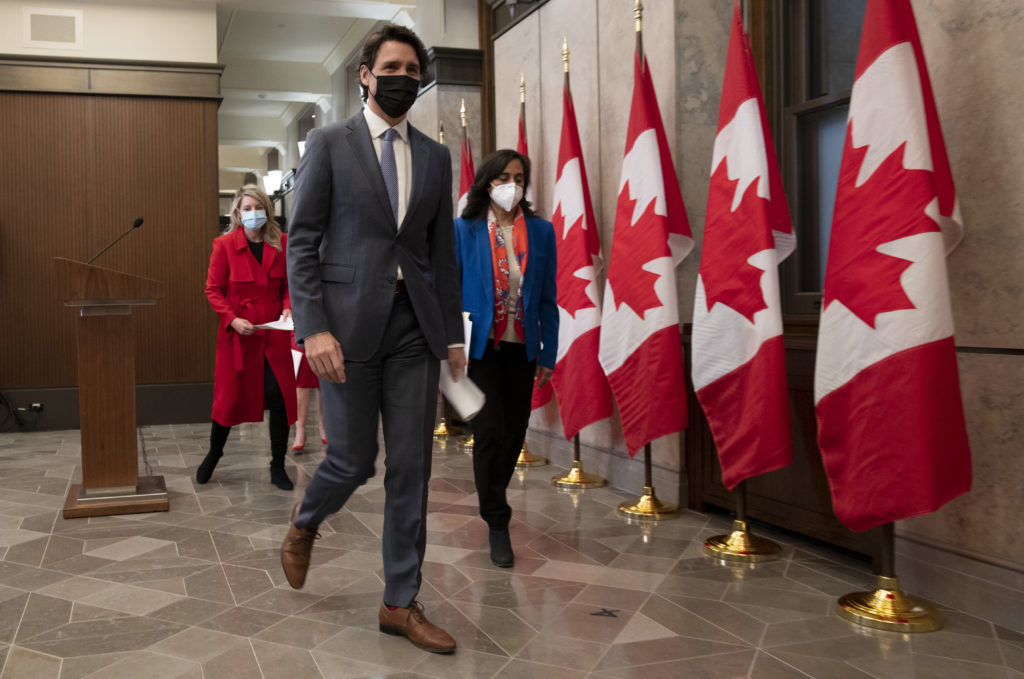
Policy developments during the break
Canada-U.S. trade disputes keep on coming
- On December 20, a three-member panel ruled that Canada violated its promise to allow more dairy imports from the United States; concluding that Canada put domestic milk producers in charge of allocating import permissions. Canada has until February 3 to comply with the ruling, after which the United States has the right to impose penalties, likely in the form of a tariff.
- On December 21, Canada filed notice of a challenge under Chapter 21 of CUSMA over a doubling of the existing duties on Canadian softwood lumber announced by the U.S. in November.
- On January 13, trade minister Ng announced that Canada is joining Mexico to request a dispute settlement panel over U.S. attempts to deny duty free status to essential auto parts such as engines, transmissions and steering wheels. The dispute centres on how the three countries define the content of North American vehicles.
Settlement on Indigenous child welfare
On January 4, Indigenous Services Minister Patty Hajdu and Indigenous-Crown Relations Minister Marc Miller outlined the details of the $40 billion settlement reached in December with First Nations groups over the systemic underfunding of child welfare services.Half the money will go toward compensating the estimated 200,000 children and families whose children were either taken from their homes or denied medical services over the past three decades; the other half will go to solving the chronic underfunding of the Indigenous child welfare system.

Major changes in the senior public service
On January 5, the prime minister announced a major shuffle of deputy ministers and other senior officials – the largest set of changes in several years. Prompted by the retirement of ten senior public servants, ten deputy ministers changed jobs and eight individuals formerly at the assistant or associate deputy minister level were promoted to more senior positions. The shuffle matched strong DMs with new ministers and reunited teams that worked well together previously.
Steve Verheul, Canada’s former chief trade negotiator who is widely credited as the architect of the country’s trade agenda, has joined the office of Finance Canada deputy minister Michael Sabia, as a special advisor for global trade issues.
More rapid tests on the way
On January 5, Health Minister Jean-Yves Duclos announced the federal government will provide an additional 140 million rapid tests to provinces and territories by the end of the month. The tests will be allocated on a per-capita basis. Duclos said the additional tests are enough to provide “one rapid test per week, per person, in Canada for January.”
Vaccine mandate for cross-border truckers/supply chains
After some uncertainty, the Canadian cross-border vaccine mandate for transport drivers took effect on January 15 amid concerns over the impact on already strained supply chains. A similar U.S. mandate took effect on January 22. A cross-country convoy of truckers protesting the mandate will reach Ottawa this weekend and demonstrate on Parliament Hill on Saturday. Next week, Transport Minister Omar Alghabra is hosting a virtual supply chain summit with industry representatives.
Health Canada approves use of Paxlovid
On January 17, Health Canada approved the use of Pfizer’s antiviral medication Paxlovid which has proven 89 per cent effective in keeping those infected with COVID-19 from developing serious illness and out of hospital. Canada has secured 30,000 treatment courses with another 120,000 arriving in the coming weeks.
Housing
Prime Minister Trudeau and Housing Minister Ahmed Hussen announced on January 21 that over 10,000 new affordable housing units will be created across the country through the Rapid Housing Initiative (RHI) for vulnerable Canadians.
Political staff shortage
With more staffers having departed over the holidays, PMO and minister’s offices continue to experience major staff shortages, issuing a central call for applications last week to fill the more than 100 vacancies. The unfilled positions are beginning to impact ministerial responsiveness on key files.
Russian threats to Ukraine
Against the backdrop of rising Russian invasion threats, Minister of Foreign Affairs Mélanie Joly joined several western counterparts last week in visiting Ukraine to offer support and bolster the government. While Ukraine requested Canada to provide armaments to fend off a potential Russian invasion, Canada instead responded with a $120 million loan, as well as vows to hit Russia with sanctions.
Following this week’s cabinet retreat, the Prime Minister Trudeau said Canada would extend Operation Unifier – Canada’s military training mission in Western Ukraine near the Polish border – by three years and expand its reach by adding 60-200 trainers. While Canada will also share “non-lethal” military equipment and cooperate with Ukraine on intelligence and cyber-security, the prime minister declined to send lethal defensive weaponry, saying “the solution to this tension should be diplomatic.” Several of Canada’s NATO allies have sent anti-armour missiles and other weapons to Ukraine in recent weeks, or deployed warships to the region in a physical show of support.
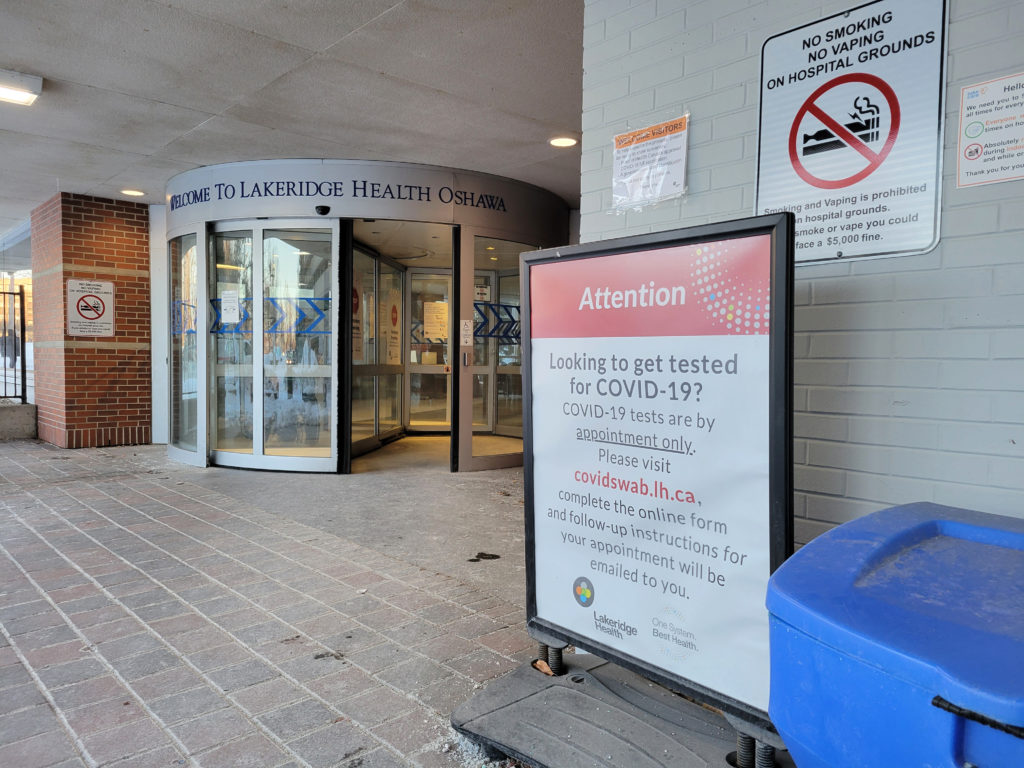
The federal agenda
Last fall’s four-week sitting was largely limited to dealing with the most urgent pandemic program adjustments and the tabling of necessary reports on government spending. When the House of Commons returns next Monday, the rubber finally meets the road for the federal government—the Liberals must begin to implement more than 350 separate policy commitments they made during last fall’s election.
With several promises to act “immediately” now well overdue, the clock is ticking loudly on the implementation of the platform. In addition, many additional commitments to act “within the first hundred days of government” will clearly not meet the deadline of February 4, which marks 100 days since the swearing in of cabinet on October 26.
Based on the Liberal platform and the ministerial mandate letters, here’s a summary of what are likely to be the key priorities on the government agenda over the coming weeks and months:
Pandemic management
On September 1 last year, the prime minister promised employers, “We’ll protect businesses that mandate vaccinations from unjustified lawsuits.” Five months later, in the absence of legislation, lawsuits from fired unvaccinated workers are piling up in courts across the country. Presumably the government will move quickly in the sitting to fill this void.
Labour Minister O’Regan will likely be at work quickly on the Canada Labour Code amendments to provide 10 days of paid sick leave for all federally regulated workers and negotiations with the provinces and territories on a national action plan to legislate sick leave across the country.
Early in the new year, Minister of Justice Lametti will bring forward the promised legislation to make it a criminal offence to obstruct access to health services and to intimidate or threaten healthcare professionals or Canadians receiving health care.
Budget 2022 will likely launch the promised $1 billion COVID-19 Proof of Vaccination Fund to help provinces and territories pay for requiring proof of vaccine credentials for non-essential businesses and public spaces.
Climate change, environment and natural resources
Not later than March 29, Minister Guilbeault owes Parliament a detailed plan to reduce Canada’s emissions by 40-45% below 2005 levels by 2030. This plan will include:
- Significant targets for zero emission electricity by 2035;
- Capping oil and gas emissions at current levels;
- Reducing methane emissions by 75%;
- Mandating 50% of new light duty vehicles to be zero emissions by 2030 and 100% by 2035; and
- Setting plans in place to move medium and heavy-duty vehicles in the same direction by 2040.
The immediate focus this winter will be to deliver Canada’s emissions reduction plan as per the Net Zero legislation passed late last year.
Several regulatory, policy and funding programs will be accelerated to meet these targets, and Canada, like every other country in the world, must demonstrate and report emissions reductions every year this decade. A failure to deliver against these plans will have significant economic, political and public consequences. The Liberals are taking a whole of government approach and several Ministers are leading initiatives including Ministers Wilkinson (NRCan), LeBlanc (Infrastructure), Champagne (ISED) and Alghabra (Transport).
At Natural Resources, Minister Wilkinson is the lead for developing a Just Transition program to support workers and communities impacted by the transition to a low carbon economy, to bring forward a National Net-Zero Emissions Building Strategy to achieve net-zero emissions from buildings by 2050 and add 5,000 new electric vehicle chargers and hydrogen stations to Canada’s network.
Health care
The pandemic has exposed many weaknesses in the Canadian health care system. In the election campaign, the Liberals promised to spend $23.7 billion on several health care and social spending initiatives:
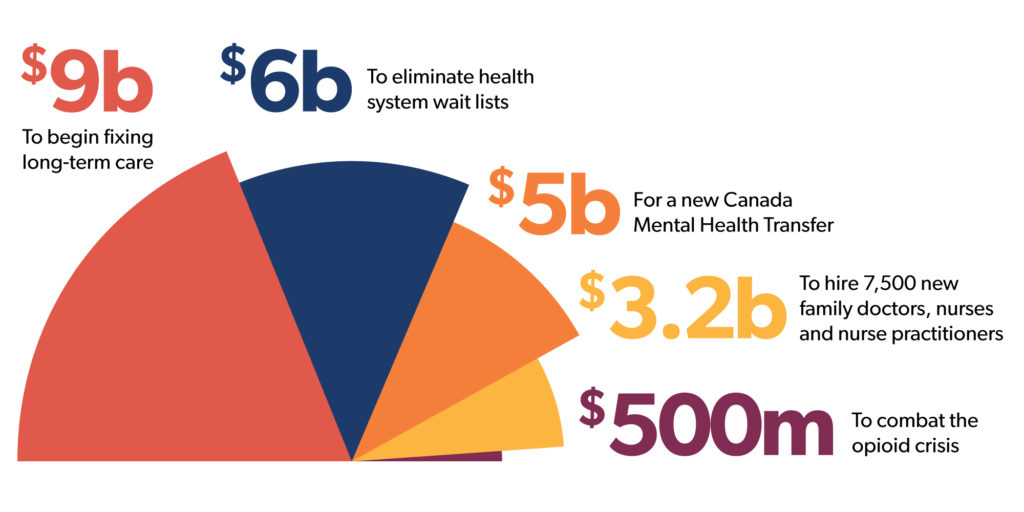
Making good on these commitments will require a federal budget and also negotiations with the provinces and territories to hammer out the federal conditions that will need to be met. Beyond these specific election commitments, the federal government has promised (when the pandemic is over) to respond to the provinces’ longstanding request for an unconditional increase of the Canada Health Transfer (CHT) of $27.6 billion in 2021-22 to $69.5 billion.
Health Minister Duclos also faces a July 1 deadline to decide on the implementation of the Patented Medicine Prices Review Board (PMPRB) regulations that would force drug prices down.
For new Minister of Mental Health and Addictions Carolyn Bennett, major initiatives to watch for include the tabling of new comprehensive national plans for mental health and substance abuse.
Arts and culture
Canadian Heritage minister Pablo Rodriguez is under the gun to deliver five separate pieces of legislation to:
- Reform the Broadcasting Act to require that international web giants to fund and promote Canadian content; *
- Require digital platforms to share a portion of their revenues with Canadian news outlets; *
- Combat serious forms of online abuse; *
- Update the Official Languages Act; *
- Amend the Copyright Act to allow resale rights for artists.
*All promised within 100 days
There are also several specific commitments to help Canadian cultural industries and sectors hit hard by the pandemic.
Indigenous Services
Throughout 2022, Indigenous Services minister Hajdu will be implementing the details of the recently reached $40-billion settlement on the systemic underfunding of child welfare services. Her mandate letter also tasks her with a $6 billion investment for ending the boil water orders in Indigenous communities and closing the “Indigenous infrastructure gap” by investing $2 billion for Indigenous housing, “with over half of the funding available by the upcoming summer construction period.”
Crown-Indigenous Relations Minister Miller will be distributing funds to First Nations communities to aid in the search for unmarked graves on the grounds of former residential schools.
Housing
With the average price of a house in Canada rising more than 19 per cent last year, newly minted Minister of Housing Ahmed Hussen faces some serious challenges in improving housing affordability. His top priority will be to bring forward a Fairness in Real Estate Action Plan, to include legislative measures to increase consumer protection and ban blind bidding. Budget 2022 is likely to fund a new Housing Accelerator Fund to support municipalities, introduce legislation to double the First-Time Home Buyers’ Tax Credit and create a new tax-free First Home Savings Account.
Employment, workforce development, disability inclusion, families, children and social development
Minister Qualtrough’s mandate letter identifies several urgent priorities, starting with the tabling of an E.I. modernization plan by June this year to expand the program to seasonal workers, persons employed by digital platforms, adoptive parents and potentially artists and cultural workers. She is also to finalize and release the Disability Inclusion Action Plan and propose a common definition of disability across the Government of Canada. The charging of federal interest on Canada Student Loans and Canada Apprentice Loans is to be abolished, likely in the budget.
Working with provinces and territories, Minister Gould’s top priority is the continued building of the Early Learning and Child Care system initiated in Budget 2021, including introduction of new federal child care legislation.
Innovation, science, industry & economic development
At ISED, Minister Champagne’s early priorities will include the creation of the Net-Zero Accelerator “to drive industrial transition and significant reductions in greenhouse gas emissions,” the introduction of legislation for a Digital Charter to ensure fair competition in the digital marketplace and implementation of a “use it or lose it” approach to broadband spectrum. The minister will also bring forward a Critical Minerals Strategy and support transformative R&D by creating a new agency the Canada Advanced Research Projects Agency (CARPA) modelled on a similar U.S. agency focused on defence.
International Trade, Export Promotion, Small Business and Economic Development Minister Mary Ng is tasked with strengthening and securing critical supply chains and establishing a Futures Fund for Alberta, Saskatchewan and Newfoundland and Labrador to “support local and regional economic diversification and place-based strategies.”
Immigration, refugees and citizenship
One of Immigration Minister Sean Fraser’s mandate letter priorities is to “reduce application processing times, including to address delays that have been impacted by COVID-19.” Given the recent media coverage of up to two year delays on files in his department, he can expect some time on the hot-seat when Question Period resumes on Monday.
Cross-cutting initiatives
Several ministers are tasked in the mandate letters to bring forward initiatives that cut across departmental lines. Among the highlights:
- The Indo-Pacific Strategy is intended to reset Canada’s troubled relationships with China by refocussing diplomatic, economic and defence partnerships and international assistance on the wider region. (Ministers Joly, Ng and Sajjan)
- Develop and renew the National Cyber Security Strategy to “protect our national security and economy, deter cyber threat actors, and promote norms-based international behaviour in cyberspace.” (Ministers Joly, Mendicino, Anand and Champagne)
- Resettlement of vulnerable people from Afghanistan (Ministers Fraser and Joly)
- Establish a Trusted Employer system for Canadian companies hiring temporary foreign workers. (Ministers Fraser and Qualtrough)
Defence
Minister Anand’s top priority is to restore the Canadian Armed Forces as a “healthy workplace free from harassment, discrimination, sexual misconduct and violence.” We can expect to see early moves to modernize the military justice system by moving the investigation and prosecution of sexual assault cases to civilian courts. An additional urgent priority is to work with the United States to “modernize North American Aerospace Defense Command (NORAD)” through “replacing the North Warning System and deploying new technological solutions to improve surveillance and monitoring of northern and maritime approaches.”
Budget preparations
Preparations for Budget 2022 are reportedly slow, and it is currently not expected to be tabled until late March or early April. Departments were directed to submit their “ask letters” to Finance Canada by January 17; these are letters in which ministers detail their top two or three priorities for funding in the coming budget. There is still no word as to whether the House of Commons finance committee will conduct the usual pre-budget consultation; the timing of last September’s election and the passage of time make this unlikely.
In addition to the tax measures necessary to implement the Liberals’ platform, watch for Budget 2022 to make good on three promises from last year’s budget:
- To raise corporate income taxes of the largest, most profitable banks and insurance companies earning more than $1 billion a year;
- To create a minimum tax rule to ensure that those individuals in the top tax bracket pay at least 15 per cent each year; and
- To implement a tax on luxury cars, boats and planes.
In addition, the election platform committed to implement a national anti-flipping tax on non-resident, non-Canadians on vacant land and residential property.
House committees ramping up
Before the holiday break, House of Commons committee memberships were finalized, and the chairs and vice-chairs elected. During the break, agendas have begun to emerge, and several committees have begun meeting:
- The Finance Committee is studying “inflation in the current economy, including housing inflation, food inflation, repatriating supply chains for strategic goods, and any other issue the committee deems pertinent to the question of inflation.”
- The Ethics Committee is focused on the recent disclosure that the Public Health Agency of Canada’s used mobile location data collected from millions of cell phones to track the movements of Canadians. While they agency said the data was disaggregated and anonymized, it did not publicly disclose its intentions in advance.
- During the break, five Conservative and NDP members of the Industry Committee forced an emergency meeting to discuss the government’s approval of the sale of Canadian lithium mining company Neo-Lithium to China’s Zijin Mining Group.
For more details on the various committees’ planned activities and studies, see this useful Hill Times article.
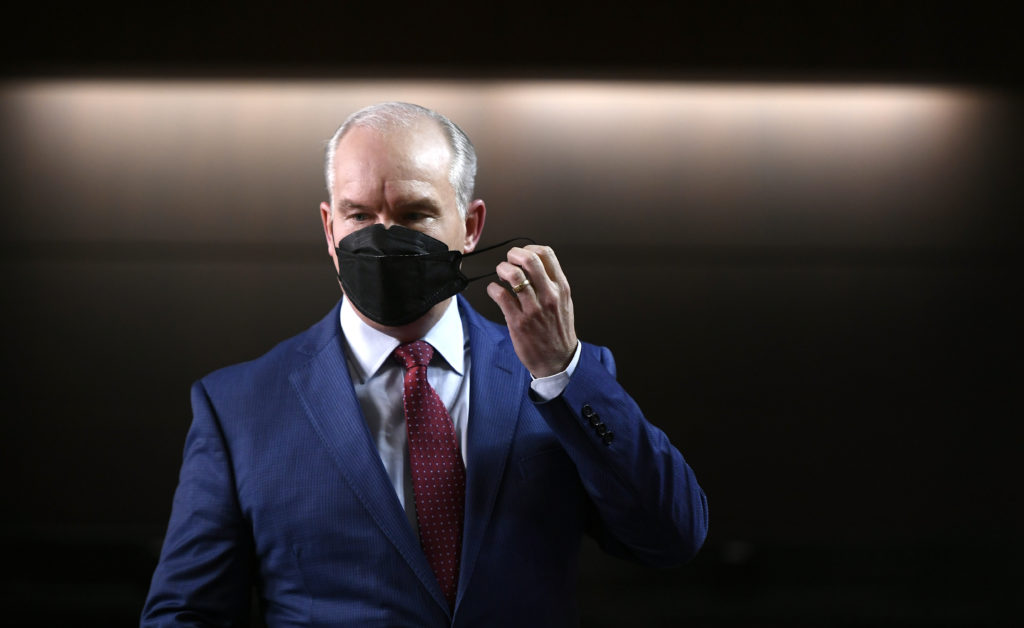
The political parties
A national January 20 poll published by Nanos showed the three major national parties in a virtual tie, with the Liberals (-4.4%) and Conservatives (-5.2%) both down in support since the election and the NDP up 6.5 percentage points.
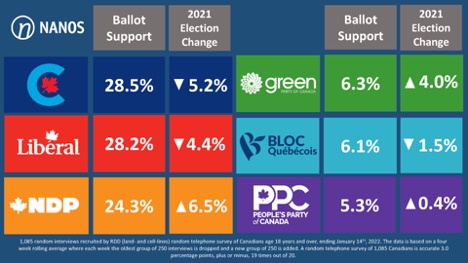
O’Toole’s challenges continue
Criticisms of Conservative leader Erin O’Toole – from both media commentators and inside his party – continue, as he has been challenged to explain his party’s opposition to vaccine mandates at time when they are supported by a clear majority of Canadians:
- Several prominent caucus members have expressed strong support for this week’s trucker convoy to protest mandates.
- Two riding associations, one in Alberta and the other in Saskatchewan, this week called on the party’s national council to conduct a leadership review no later than June 15 this year.
- Also this week, a Nanos/Globe and Mail poll found Conservative finance critic Pierre Poilievre (17 per cent) with more support than Erin O’Toole (10 per cent) as best to lead the party into the next election.
At their caucus meeting this week, the Conservatives were set to receive the election post-mortem prepared by former MP James Cumming.
Retreats and planning sessions
In advance of the return of the House, cabinet held a planning session and the NDP, Liberals and Conservatives each held caucus retreats in the past two weeks.





